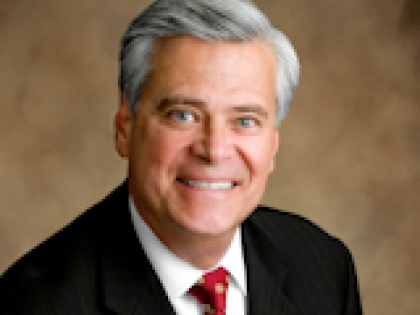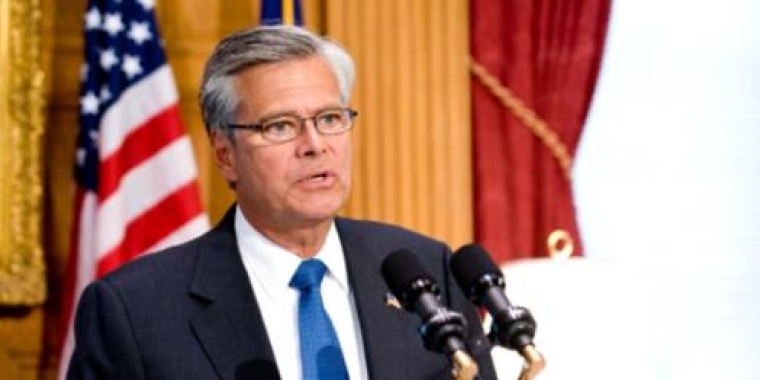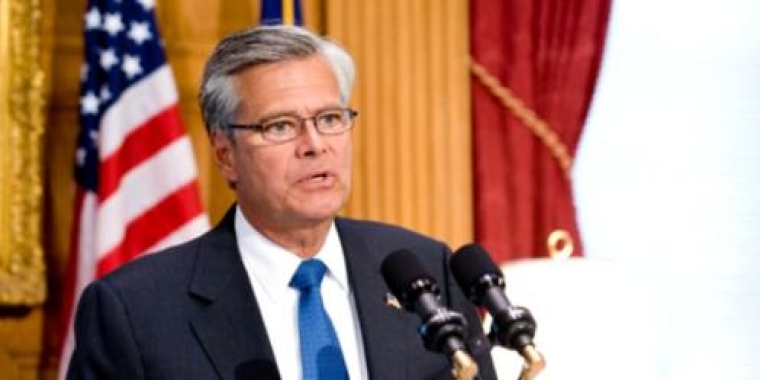
Senate Republicans: Tougher Medicaid Fraud Effort Needed to Stop Abuse and Save Tax Dollars
Dean G. Skelos
February 2, 2010

Senator Hannon To Chair New Medicaid Fraud Task Force
In an effort to strengthen the state’s efforts to fight Medicaid fraud, which is driving up spending and taxes at the state and local levels, Senate Republican Leader Dean Skelos today announced the creation of the Senate Republican Task Force on Medicaid Fraud. He appointed Senator Kemp Hannon (R-C-I, Garden City), to serve as Chairman.
“There is no excuse for tolerating any fraud in a program that is the fastest-growing and largest single component of state and county budgets,” said Senator Skelos. “Medicaid fraud drives up state spending and taxes as well as local property taxes. We must fight fraud aggressively, restore accountability and integrity to the Medicaid program, and ensure that tax dollars are spent wisely to help the people who really need help, not enrich criminals who prey on the system.”
The task force will hold hearings this month in Albany and in Nassau County and issue recommendations prior to the April 1st budget deadline. Along with Senator Hannon, the task force includes Senators George Winner (R-C-I, Elmira), Charles Fuschillo (R, Merrick), Michael Nozzolio (R-C, Fayette), Mike Ranzenhofer (R-C-I, Amherst), Hugh Farley (R-C, Schenectady), Martin Golden (R-C, Brooklyn) and Vincent Leibell (R-C-I, Patterson).
“Medicaid fraud is possibly costing New York State taxpayers billions of dollars. It’s crucial that we act immediately to prevent this type of fraud at the state and local levels,” said Senator Kemp Hannon. “During a time when every single cent counts, we cannot afford to let the possibility of this amount of money fall through the cracks of the system through fraud and abuse. This task force will investigate whether or not the fraud prevention system is working at an optimal level and subsequently, develop a realistic solution to protect our taxpayers and the people who truly need Medicaid to pay for health care.”
“Long term, our desired objective must include the implementation of an effective and efficient method of delivering Medicaid services to our seniors and those citizens whom are most in need. Simultaneously, we must ensure that the protection of our taxpayers is a top priority,” Senator Hannon added.
“Longer term, we need to focus on how we can better deliver Medicaid services to the elderly and the needy in a way that is more effective for them and more efficient for taxpayers,” Senator Hannon added.
The widespread problem of Medicaid fraud has been highlighted by several reports issued by the state Comptroller’s office that documented millions of dollars in Medicaid overpayments and billing errors, as well as tens of thousands of people that were improperly enrolled in Medicaid in New York City.
Despite the fact that they are on the front lines of the Medicaid program, county officials are saying the state inhibits their efforts to stop fraud at the local level. In fact, the 2009-10 state budget approved by the Governor and legislative Democrats eliminated the eligibility requirements for face-to-face interviews, finger-imaging and asset tests for applicants for Medicaid that are conducted by counties. The interviews are intended to ensure accountability in the system, but will no longer be required as of April 2010.
Chemung County Executive Thomas J. Santulli, President of the New York Association of Counties, said, "We need to have all levels of government working together so that scarce public funds are used as they are intended to be. Our counties know what works in the program and what doesn't, and there may be areas of fraud and abuse. Recently, New York City and forty-two New York Counties obtained a victory in federal court against 13 pharmaceutical manufacturers for fraudulent pricing through the Medicaid Program. These types of actions continue to demonstrate the relevance and importance of county governments insuring the integrity of the Medicaid Program in New York."
"This Task Force will dig deep to find solutions to protect state taxpayers from a system that remains vulnerable to fraud and abuse," said Warren County District Attorney Kate Hogan, who is also the President of the New York State Association of District Attorneys. "Through its efforts, the members of the Task Force will combine extensive knowledge and experience in the continuing battle to combat Medicaid fraud."
The U.S. Government Accountability Office estimates that as much as 10 percent of Medicaid expenses are diverted through fraud. The Executive Budget proposes spending a total of more than $51 billion on Medicaid, meaning as much as $5 billion could be fraud in the system.
In 2006, the Senate passed legislation sponsored by Senator Skelos, which was enacted into law, that:
> Created a new, independent Office of Medicaid Inspector General by consolidating
responsibilities and staff from six agencies into the new Office and empowering the Medicaid Inspector General with the ability to detect, investigate and recovery improper Medicaid payments;
> Provided county governments with new incentives and access to information to become active partners in the fight against Medicaid fraud;
> Enhanced the capacity of the Department of Health and Office of Medicaid Inspector General to fight fraud with new, state-of-the-art technology;
> Established new protocols and procedures to ensure the effective sharing of information and evidence regarding Medicaid fraud between the Office of Medicaid Inspector General, the Attorney General’s Medicaid Fraud Control Unit, county governments and district attorneys;
> Required health care institutions to implement corporate compliance programs and allowing providers to request advisory opinions to ensure proper billing practices, and
> Created new Health Care Fraud offenses to aid in the criminal prosecution of Medicaid fraud.
“The 2006 law is not having as much of an impact as we expected and this task force will find out why and recommend ways to improve fraud prevention, prosecution and recovery,” Senator Skelos said. “This issue becomes even more urgent when you consider reports that the federal government is investigating whether the people who are supposed to be watching out for Medicaid fraud are actually committing fraud themselves.”
According to report in the Times Union last October, investigators with the federal Department of Health and Human Services are investigating the SUNY Research Foundation and the state Health Department to determine if employees were pushed to underreport Medicaid fraud data to ensure that the state was eligible for federal money.
In December, the state Comptroller released the results of an audit that identified as much as $92 million in Medicaid overpayments, billing errors and other problems. He called on the state Department of Health to increase scrutiny of Medicaid payments and recover improperly made payments. The Department agreed there were overpayments, but said it would only try to recover $2.4 million in overpayments.
In addition, a 2008 report in the New York Post cited an audit by the New York State Comptroller’s Office, that determined that nearly 30,000 people in New York City alone were improperly enrolled in the State’s Medicaid system between November 2006 and November 2007. While the audit shows that almost 13,000 former New York City residents should have been investigated for violations of the State’s Medicaid laws, only 207 cases were investigated.
In his Executive Budget, Governor Paterson increased the state’s target for Medicaid fraud recovery by $300 million, to a total of $1.1 billion.
“We can do much better than recovering just $300 million more in fraud,” Senator Skelos said. “New York’s Medicaid fraud recovery is far short of what it could be and still lags behind many other states.”
A report issued last month by the U.S. Department of Health and Human Services ranks New York 26th in the nation in Medicaid fraud recovery, based on the number of fraud dollars recovered per federal Medicaid dollar spent. According to the report, states such as Missouri and North Carolina recover about three times as much in Medicaid fraud, while six other states recover twice as much as New York.
A report last fall by the federal Government Accountability Office (GAO) focused on Medicaid fraud related to prescription medication. The report studied New York and four other states. The GAO faulted New York for “not having a comprehensive fraud prevention framework to prevent fraud and abuse of controlled substances paid for by Medicaid.” The GAO report concluded that the cost associated with Medicaid fraud and abuse of controlled substances may be more than the cost of legal prescription drug purchases covered by Medicaid.
####
Share this Article or Press Release
Newsroom
Go to NewsroomHelpful Holiday Shopping and Safety Tips
December 16, 2009

Statement by Senate Republican Leader Dean Skelos
December 2, 2009

Senator Skelos Speaks on NYS Budget Deficit
November 20, 2009